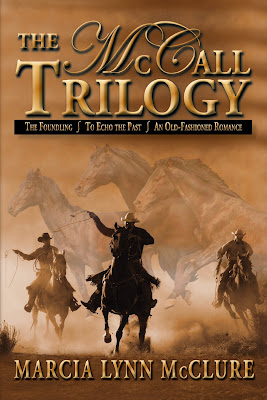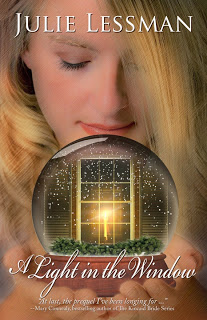In Defense of Escape
by J. Aleksandr Wootton
There are still people who criticize the fantasy genre for
being “escapist.” They are not wrong; they are missing the point.
Readers, fans, lovers of fantasy do not return to the same
shelves at the library only because we want a temporary respite from our own
lives, although fantasy does offer such respites.
We do not pre-order our favorite authors’ forthcoming books
while browsing fanfic blogs merely because the successes of heroes whose
adventures we eagerly follow inspire our own deeds, both great and small –
although the heroes of fantasy’s countless elsewheres do provide such
inspiration.
We do not dress in costume for midnight movie premieres to
demonstrate our disillusionment with the modern world (even if we are
disillusioned). We do not cosplay at conventions because fantastic characters
and settings have somehow become more “real” to us than our everyday
experiences (well, not to most of us anyway – I do have my doubts about some).
The truth is that everyone needs escape, but we find it in
different forms. Any engagement with fiction, any exercise of the imagination,
is escape – just as the solitude of a painter or poet, working to complete a
jigsaw puzzle, keeping a sabbath, or even cleaning the garage, is escape.
Everyone loses themselves in some kind of habitual activity which, though doing
nothing directly to solve their problems, refreshes them for the return to
life’s task at hand.
Escape is a kind of mirror. In losing ourselves we find
ourselves; a step taken into another world is a step taken back from our own
lives, a chance to re-examine where we are and what we are doing. Time and
again the winding path through familiar yet ever-changing woods, the twisted
intersections of a car’s mechanical bowels, the road going “ever on, down from
the door where it began”, there and back again, all turn out to be disguises
for a map depicting the places we have come from and are going to.
In the foreword to her collection Tales from Earthsea,
Ursula K. Le Guin has rightly written that “people turn to the realms of
fantasy for stability, ancient truth, immutable simplicities.” We are all born
with the need for escape; for some, studying the reflection of an alien
landscape makes it easier to see the common wisdom linking our heroes’ lives
with our own. Familiar lessons stand out against an unfamiliar backdrop.
And if we take solace along the way in the arms of a dream
that seems fairer, at least for the moment, than our own prospects, which of
you – boomers, hipsters, yuppies – will blame us? Which of us has not, when
faced with a problem that seems insoluble (however temporarily), wished
ourselves into a different sort of arena – and a champion’s laurel? Who among
us has not spent part of his our her life seeking out lesser challenges as an
excuse to put off a dubious attempt at something greater? He who is without
dreams among you, let him cast the first stone.
Fantasy does indeed offer escape, and it is a noble offer.
No chance to better understand our own existences should be lightly put aside,
and sometimes the translation of the familiar into the foreign and back again
results in surprising clarity, fresh perspectives on subjects and people we
look past every day but have long ceased to notice. A good fantasy is useful as
well as enjoyable, instructive rather than obstructive: distraction with
application.
Tolkien was on to something when he said, in his Andrew Lang
Lecture On Fairy-Stories, that we create because we ourselves are made
in the image of a great Creator. Regardless of what you believe about how we
all got here, it’s difficult to deny that the sum of all of our creativity and
scientific inquiry is engaged in a vast effort to make sense of it – to
understand what and where exactly ‘here’ is, and why we are at it.
When we depart for a time to explore realms of fantasy, we
return in the knowledge – not always admitted aloud – that the wonders we have
seen are only shadows of the forms of this world (just as this world may be
nothing more than shadows of a world of true forms, as Plato suggested). The
imagination can conjure no deeper magic than sunlight in oak leaves; it can
sculpt no elf-maiden tall, lithe, mysterious, to compare to the beauty of a
young mother laughing in a rainstorm; it can summon no demons more horrible
than those that haunt and damn us every day in our homes, on our streets, at
our jobs.
The funny thing about escape and escapist literature is that
escapes are temporary, and for that we should be grateful. We cannot spend
forever reading about the passion and the pain and the joy of love, watching
other peoples’ happily-ever-afters on the silver screen, or cheering on sports
teams, racers, politicians, or prize-fighters whose victories will never get us
anywhere; and ice cream and popcorn make lonely company after awhile.
My point is this: make your escapes, and make them good. Use
them well and wisely, and come back to us with whatever little thing you have
gained. It is just possible that the wisdom we gather from reading fairytales
could help us make real-world fairytale-endings a little less rare.
 J. Aleksandr Wootton is the author of the Fayborn novels,
available in paperback and digital formats from your favorite online
bookseller.
J. Aleksandr Wootton is the author of the Fayborn novels,
available in paperback and digital formats from your favorite online
bookseller.
His website is www.jackwootton.com







